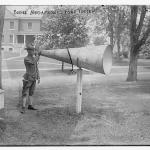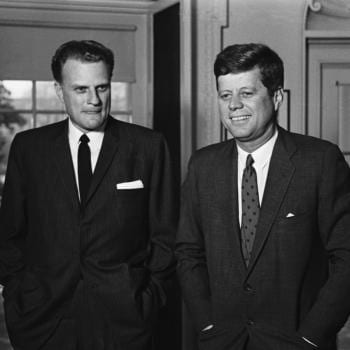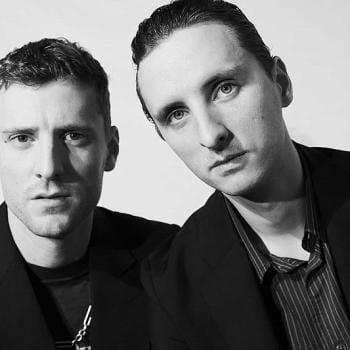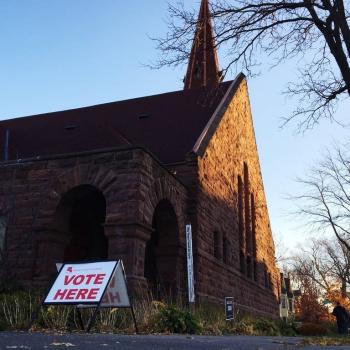One of the best features of Paul Schrader’s new film, First Reformed, is that it introduces to popular culture the variety of Protestantism known as “Reformed.” The four original branches of Protestantism were Lutheran, Reformed, Anabapist, and Anglican. Lutheran, Anabaptist, and Anglican are fairly easy to identify. But Reformed is a word that could be confused with a certain kind of school, a specific form of political activism, or even a catalytic process in chemistry.
Reformed technically is short for “reformed according to the word” and it applies to churches in continental Europe that were neither Lutheran or Anabaptist. As such, Reformed churches developed in France (the Huguenots), German-speaking territories (like Heidelberg), Hungary, Poland, Lithuania, and became the state church in the Netherlands.
Reformed is different from Presbyterian, though not by a lot. The churches in the British Isles that generally followed either Zurich or Geneva over Wittenberg went by the name of their form of government — rule by presbyters. Reformed churches also used pastors and elders meeting at local (session or consistory), regional (presbytery or classis), or national (general assembly or synod) meetings to oversee church life. In the weeds of church polity, Reformed communions are more congregational than presbyterian; a Reformed pastor invariably is a member of his congregation; a Presbyterian pastor belongs to his regional body, the presbytery. But over all, Reformed and Presbyterian generally distinguish European from British churches that locate church authority in the offices of pastors and elders. Another difference is that Reformed churches generally confess some configuration of the Belgic Confession, the Heidelberg Catechism, and the Canons of Dort. Presbyterians follow the Westminster Confession and the Larger and Shorter Catechisms.
Reformed is not synonymous with Calvinist. One reason is that Reformed churches, like those in Zurich, Bern, and Basel were Protestant even before Calvin converted from Roman Catholicism. Another is that a variety of English Protestants, from Puritans to Baptists, claim to be Calvinistic in theology but not in church government or worship. But watch how journalists and film reviewers used “Reformed” interchangeably with “Calvinist.”
For Tom Brueggemann:
“First Reformed” is the story of a Calvinist clergyman whose parish is more of a museum than a thriving congregation, and who faces a crisis of faith as his church approaches its 250th anniversary.
For Cary Darling:
Questions of faith, masculinity, sacrifice and salvation have long been part of Schrader’s work — the former member of the Calvinist Christian Reformed Church, who didn’t see a film until he was 17, wrote “Taxi Driver,” “Raging Bull” and “The Last Temptation of Christ” — and “First Reformed” ranks as one of his strongest efforts juggling these themes.
(Shrader’s church was Christian Reformed Church not Calvinist Christian Reformed Church, though she is using Calvinist as an adjective.)
For Alexandra Wolfe:
These days, Mr. Schrader is no longer a Calvinist, but he’s still deeply religious. He converted to Episcopalianism after his children were born. “Calvinism was all the guilt and none of the ritual, and Episcopalianism was the opposite,” he says. Three years ago, he became Presbyterian, mostly because his local church had a music program that he enjoyed.
Now 71, Mr. Schrader is revisiting his Calvinist roots. “First Reformed,” a film he wrote and directed about a despairing minister in the Calvinist tradition, opened May 18.
For Eleanor Ringel Cater:
Yes, environmental concerns are raised in “First Reformed” and yes, Schrader wrote “Taxi Driver” which also examined the psyche of someone so isolated and in pain as to be almost beyond our understanding.
But this picture reverts to the filmmaker’s deep Calvinist roots and to questions of religion and faith rarely examined in today’s cinema.
The movie itself is relentlessly bleak, the way many think of Calvinism; Schrader may have turned everyday life into the liturgy that Reformed Protestantism seemingly lacks. It doesn’t explore much the doctrines of Reformed Protestantism or what may have driven this pastor when he accepted his call. But even though it looks like the ending of First Reformed is going to be a clerical version of Taxi Driver, Schrader resists despair:
The final moments of the film spin around like a hazy daydream — no different from the desperate vision Jesus had on the cross for a better life in Last Temptation, or in the ambiguous visage of a happy future in Taxi Driver. In First Reformed, Schrader’s finale leaves little room for interpretation. Toller’s end is not Travis Bickle’s. This moment is real; you can feel it. It can even leave the screen if you want it to.
Meanwhile, First Reformed is a teaching moment for Protestant history.












